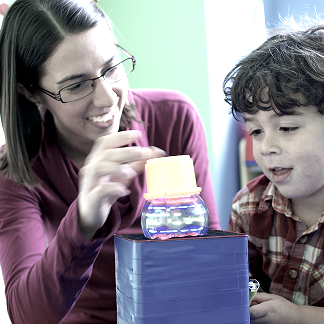Teaching
Students

Kamaria Kaalund
Fall 2019
Wellesley
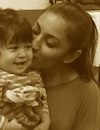
Rianna Shah
IAP, Spring, Fall 2015; IAP & Spring 2016; Spring 2018
MIT
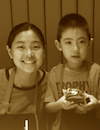
Alice Wang
Summer 2017
MIT

Jessica Zhu
Fall 2016
MIT

Audrey Ricks
Summer 2016
MIT

Hope Fuller-Becker
Spring 2015, Spring 2016
Wellesley

Katy Hanling
IAP, Spring, Summer, & Fall 2014; IAP, Spring, Fall 2015; IAP, Spring 2016
MIT
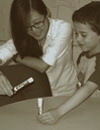
Junyi Chu
Summer 2015
Vanderbilt

Joseph Alvarez
Summer 2015
Skidmore

DingRan (Annie) Dai
IAP & Spring 2015
MIT
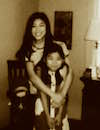
Jean Yu
IAP & Spring 2015
Wellesley

Daniela Carrasco
Fall 2015
Wellesley

Scout Brisson
Fall 2014
MIT

Jean Chow
Fall 2014
MIT

(Nia) Dasul Jin
Fall 2013, IAP & Spring 2014
MIT

Shirin Shivaei
IAP, Spring 2014
MIT

Vivienne Wang
Spring, Summer, Fall 2013
Wellesley

Chloe Joray
Summer 2013
Research Science Institute (high school student)

Jess Wass
Fall 2012, Spring 2013
MIT

Alice Lu
IAP, Spring 2013
MIT
Cindy Zhou
Summer 2012
Research Science Institute (high school student)
Susie Sol Jee Lee
Summer 2012
Wheaton College
Teaching experience
TA, MIT, Fall 2014
Advanced seminar that covers both classic and cutting-edge primary literature from psychology and the neuroscience of morality. Addresses questions about how the human brain decides which actions are morally right or wrong (including neural mechanisms of empathy and self-control), how such brain systems develop over childhood and differ across individuals and cultures, and how they are affected by brain diseases (such as psychopathy, autism, tumors, or addiction). Instruction and practice in written and oral communication provided. (Instructor: Rebecca Saxe)
Instructor, MIT, IAP 2014
Project-based class in which students develop an “at home lab activity” to teach parents about some aspect of cognitive development. Examples include measuring the child’s N-knower level or plotting a habituation curve. Students will be responsible for reading several papers about a scientific finding in cognitive development, piloting a parent-friendly version with local families, and preparing a written and video guide to trying it at home.
TA, MIT, Fall 2012 & 2013
Introduction to cognitive development focusing on childrens’ understanding of objects, agents, and causality. Develops a critical understanding of experimental design. Discusses how developmental research might address philosophical questions about the origins of knowledge, appearance and reality, and the problem of other minds. Provides instruction and practice in written communication as necessary to research in cognitive science (including critical reviews of journal papers, a literature review and an original research proposal), as well as instruction and practice in oral communication in the form of a poster presentation of a journal paper. (Instructor: Laura Schulz)
Lead instructor, Caltech, Summer 2011
Summer program for underrepresented high school students with courses in CS & neuroscience.
TA, Caltech, Summer 2010
Summer program for underrepresented high school students with courses in CS & neuroscience.
TA, Caltech, Fall 2007, 2008, & 2009
CS 1 is an introduction to the automated processing of information, including computer programming. This course gives students the conceptual background necessary to understand and construct programs (i.e., specify computations, understand evaluation models, use and understand major constructs, including functions and procedures, scoping and environments, data storage, side-effects, conditionals, recursion and looping, and higher-order functions). CS 1 introduces key issues that arise in computation (e.g., universality, computability, complexity, representation, abstraction management). This course puts the components of computer science in context, serving as an overview for students specializing in computational disciplines and alerting all students to important subtleties that may arise when applying computation in their studies, research, and work. At the end of this course, students should be able to read and write (synthesize, analyze, understand) small programs (100 lines) and have the intellectual framework necessary to rapidly assimilate new computer languages as the need arises. (Instructors: Michael Vanier, Donnie Pinkston)
Resources
Video: Your child’s developing theory of mind (demonstrations of false-belief tasks)
Video: One, two, lots! (demonstrations of give-N and explanation of number-knower levels)
Slides: Temptation and self-control discussion for 9.46 (intro video of 4-year-old describing why he thinks people do bad things)
Slides: Moral development for 9.46
Slides: Short counterbalancing discussion for 9.85
Slides: Introduction to language learning for 9.85
Slides: (How) does the brain do Bayesian inference?
Reading and homework: Artificial neural networks for LEAD 2011
Reading and homework: Visual system for LEAD 2011
